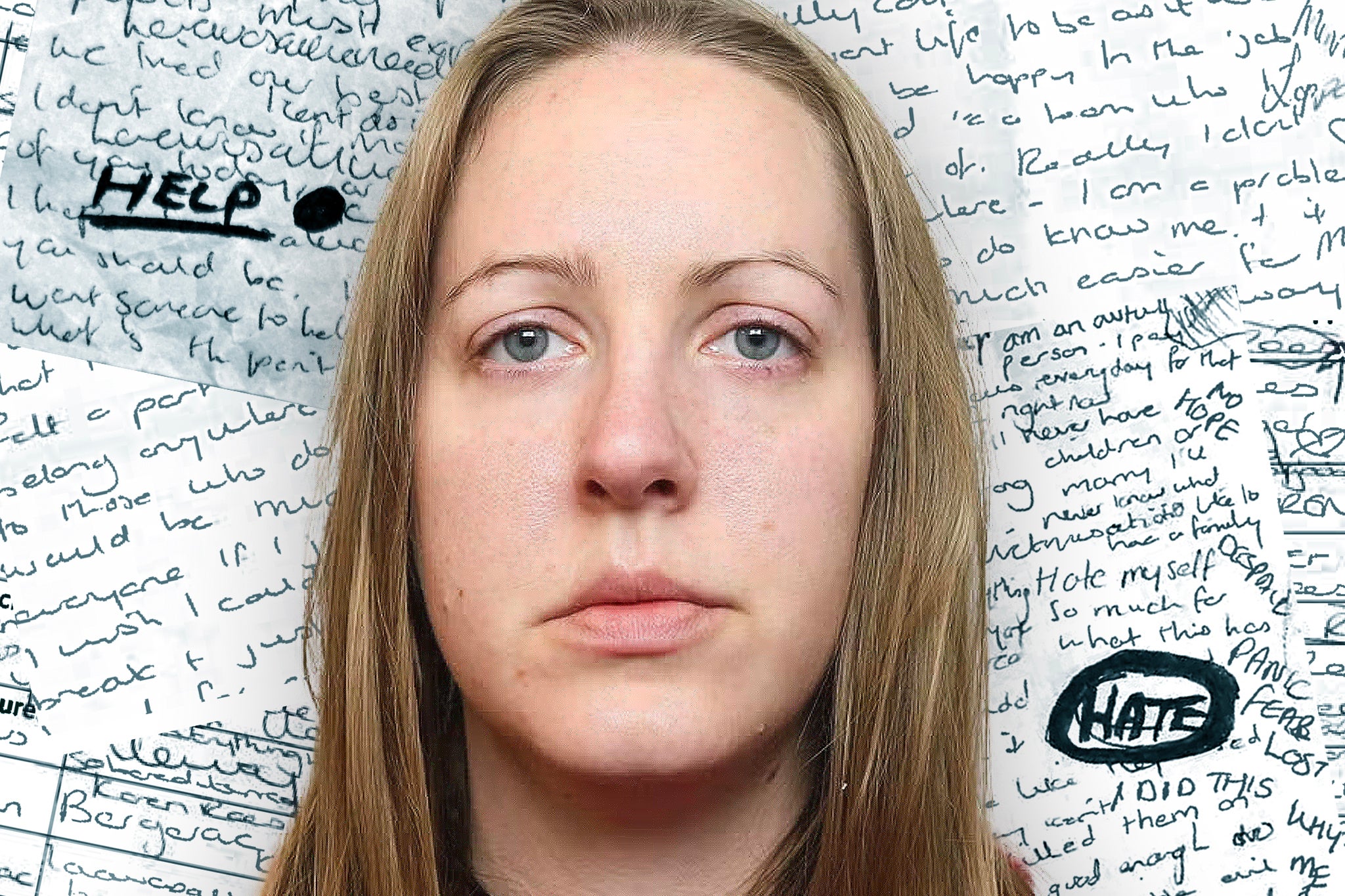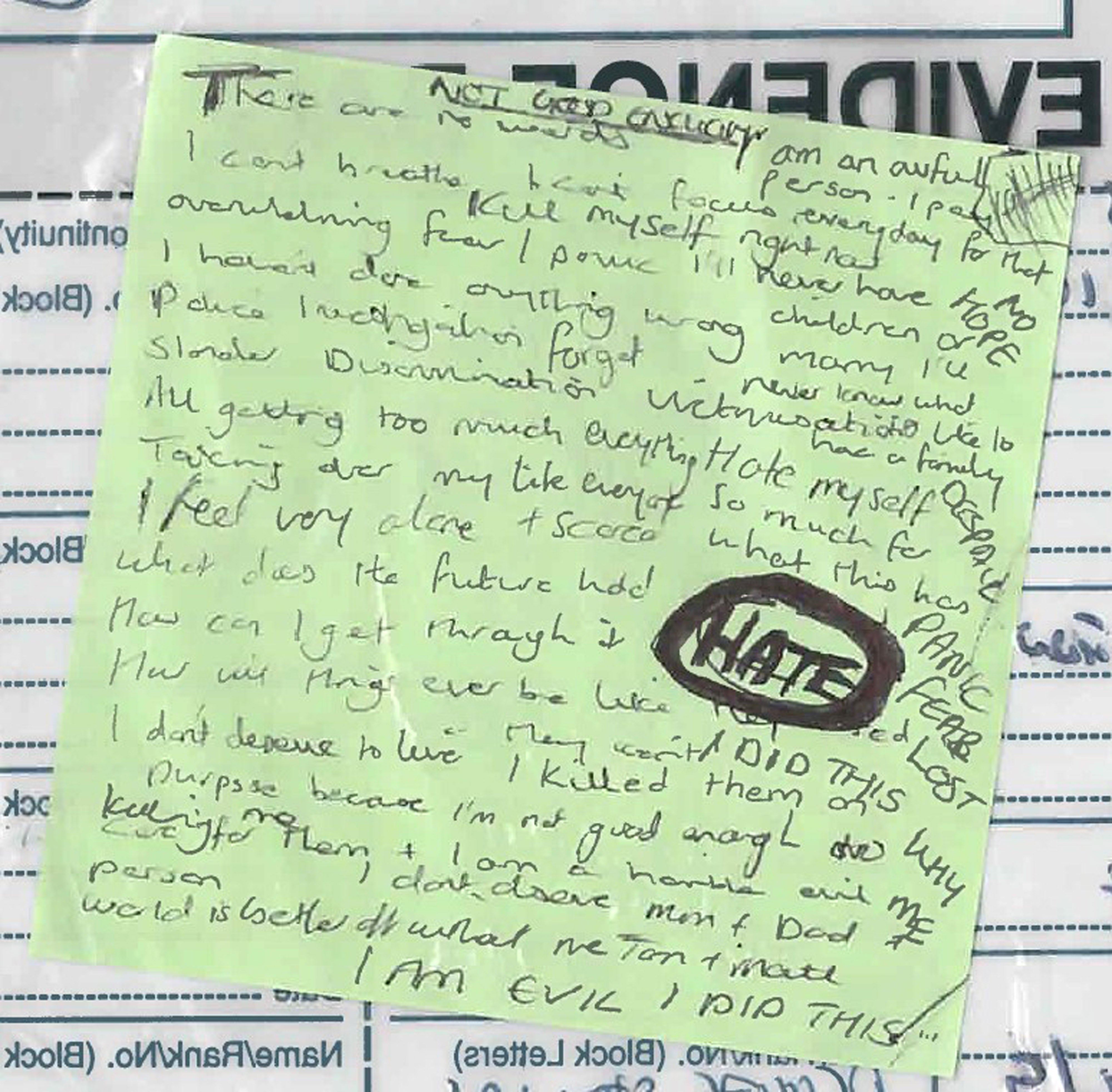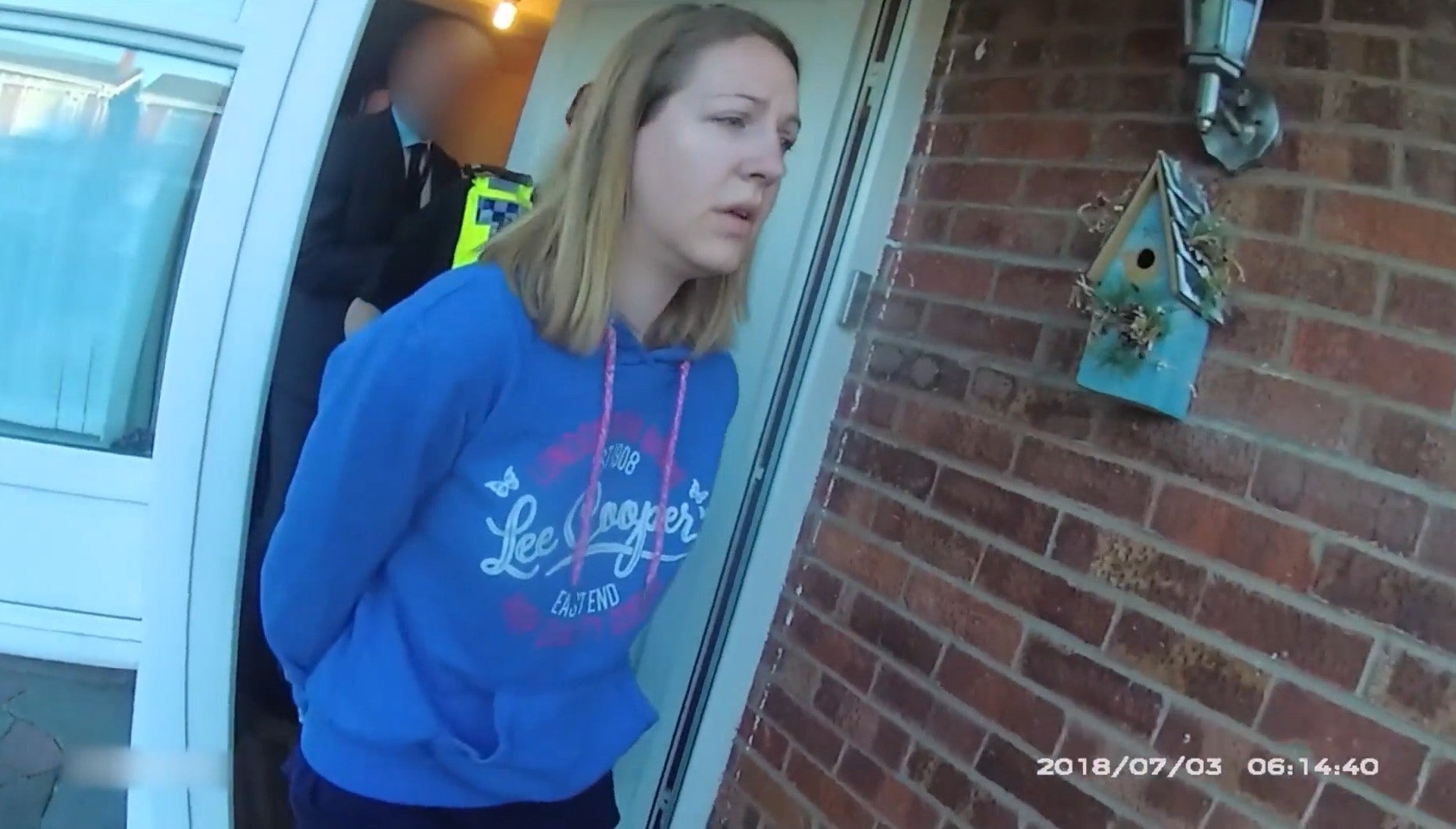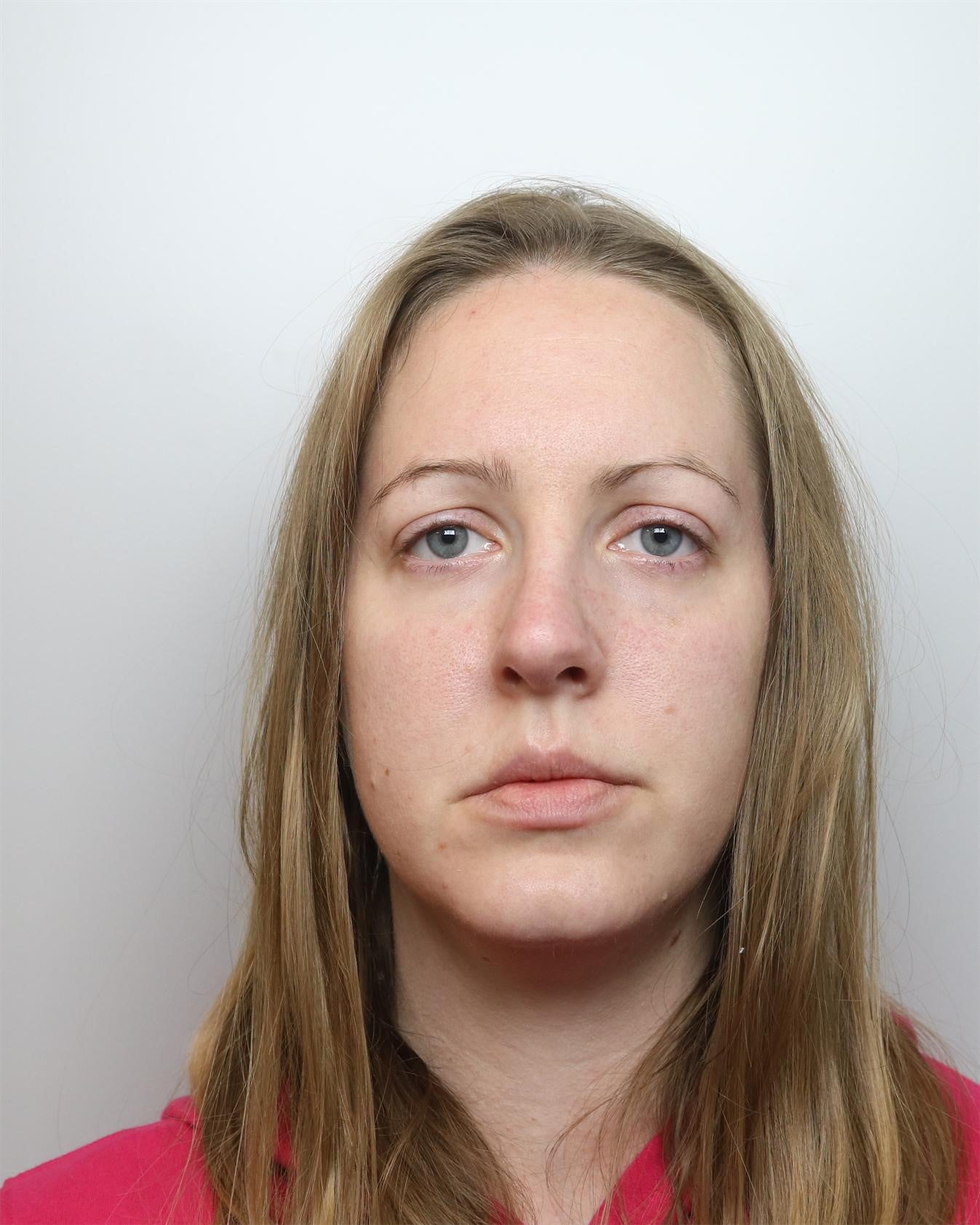Lucy Letby wrote ‘I am evil I did this’ notes on ‘advice of counsellors to cope with stress’
Lucy Letby’s ‘confession’ notes ‘meaningless’ as evidence, claims serial killer expert

Lucy Letby scribbled notes like “I am evil I did this” on the advice of her GP and hospital bosses to cope with her feelings of extreme stress, it has been reported.
The NHS neonatal nurse is currently serving 15 whole life sentences for seven murders and seven attempted murders of babies while working at the Countess of Chester Hospital.
Evidence was presented at the initial trial of her morbid fascination with her crimes: searching the victims’ families on Facebook, hoarding confidential documents about the cases at home and revealing her own thoughts in dense, scrawled notes which included the apparent confession “I am evil, I did this”.
She also wrote on a scrappy Post-it note found in her house which read: “I killed them on purpose because I am not good enough to care for them and I am a horrible evil person.”
“Hate” was also written in block capitals with heavy ink and circled, while the note is headed: “Not good enough.”

A jury at Manchester Crown Court was shown the note on which it is claimed Letby also wrote words such as “hate myself”, “panic”, “fear”, “lost” and “I feel very alone and scared”.
But sources close to the case told The Guardian that Kathryn de Berger, head of occupational health and wellbeing at the hospital where she worked, had encouraged Letby to write down her feelings as a way of coping with extreme stress.
The sources also told the paper Letby’s Chester GP advised her to write down the thoughts she was struggling to process.

David Wilson, who specialises in serial killers, said if they had been written as part of counselling the confession notes should be rendered as having no value in evidence.
He told the publication: “Many people will say things when they are under stress and feeling bereft, that seem to imply one thing but mean nothing at all, other than reflecting the underlying stress.”
The professor of criminology at Birmingham City University added: “I always thought Letby’s notes were meaningless as evidence. If they were written as part of therapy you can underline that point three times and write it in bold and capital letter.”
When asked about the notes in court, Letby said she often wrote things down to help her understand her feelings. The suggestion of it being a part of counselling was not mentioned.
Former commissioner at the Criminal Cases Review Commission, David James Smith, wrote in The Independent on Tuesday: “On first look, it certainly looked like evidence of a troubled mind, but on closer inspection others have since suggested, this could easily be an expression of a deterioration of mental health and self-loathing at the association with the deaths of the babies and the increasing suspicions of doctors who worked with her.”

When asked about the Post-it note – found inside a diary at her home in Chester after her arrest in 2018 – Letby told detectives: “I just wrote it because everything had got on top of me... I was blaming myself but not because I’d done something (but) because of the way people were making me feel.
“But like I’d only ever done my best for those babies and then people were trying to say that my practice wasn’t good, that I’d done something.
“I just couldn’t cope and I just did not want to be here any more.”
A growing number of experts have also cast doubts on the rota, which formed a key part of the case and showed Letby to be on duty for every suspicious death or collapse between June 2015 and June 2016.

But Peter Green, a former president of the Royal Statistical Society, said: “The chart appears to be very convincing, but there are a number of issues with it.
“A big thing is that it only describes 25 of the bad events which happened in this period.
“It doesn’t include any of the events that happened when Lucy was not on duty.”
On Monday former Brexit secretary Sir David Davis explained why he believes there is “more than reasonable doubt” over Letby’s conviction and thinks it is “highly probable” she is innocent.
Letby had refused to appear for sentencing at her first trial last year, but when she was sentenced for the attempted murder of another child following a retrial in July, the 34-year-old stood in the dock of Manchester Crown Court.
As she left to resume her jail term, she paused to say to the court: “I’m innocent.”
Following one of the longest legal cases in British history, she was convicted last summer and handed 14 whole-life orders for her “murderous campaign”.
Letby lost her Court of Appeal bid in May to challenge her convictions from last year.
